The audio version of this Pinch of the Past was first shared in Episode 32: Guest Jody Hedlund & a Review of Shadows in the Mind’s Eye by Janyre Tromp
Today’s Pinch of the Past … started as a look at traditions in raising children and somehow morphed into the practices of children in relation to schools throughout history.
Firstly, the Puritans in America. Education was valued in Puritan society, especially since the religious studies enabled citizens to better participate in community meetings.
In 1647 Massachusetts, laws mandated that towns have an elementary school. These were called Grammar or Latin schools and mean to prepare them for higher education. Nearly all New England towns provided education for their children. They were taught to read, write, cipher and religion.
School in Colonial America
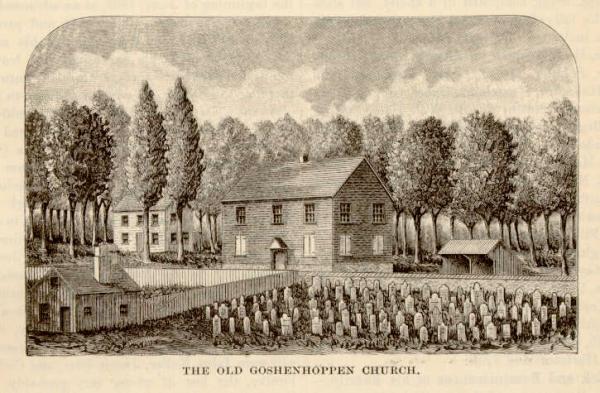
In 1743 Father Theodore Schneider opened the first Catholic school for boys and girls in the town of Goshenhoppen, PA (present day Bally). Coincidentally, this school is still in operation.
Jefferson wrote George Wythe in 1786 stating that “the most important bill in our whole code, is that for the diffusion of knowledge among the people.” He went on to say that “no other sure foundation can be devised for the preservation of freedom and happiness.” he was not in favor of foreign education on families though is said it was “better to tolerate the rare instance of a parent refusing to let his child be educated than to shock the common feelings and ideas by the forcible asportation [removal] and education of the infant against the will of the father.”
School discipline
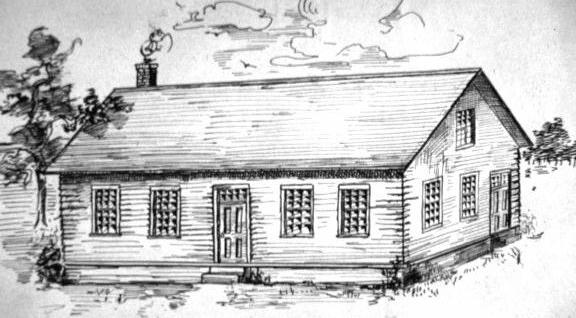
A first-person account of a boy who attended public school in Victoria, BC.
From Some Reminiscences of Old Victoria by Edgar Fawcett. He attended what was called the Colonial School in 1859. He describes it as, “built of square logs and whitewashed, and was occupied by the master and his family. The school proper occupied only about a third of the building, and was a large room extending from the front to the back of the building. It was taught by an Irishman named W. H. Burr.
Fawcett says that,
“Burr’s temper was quick, like my own, and although he tried to make me a good scholar, I am afraid I did not do him or his teaching justice, and I remember two good beatings he gave me far better than the useful knowledge he tried to inculcate. It was thus: Our school might aptly be termed a mixed one, for it consisted of boys and girls who sat together. This arrangement just suited me, for I was fond of the girls. There were white boys and black boys, Hebrews and Gentiles, rich and poor, and we all sat close together to economize room.
Some Reminiscences of Old Victoria by Edgar Fawcett.
Playing hooky
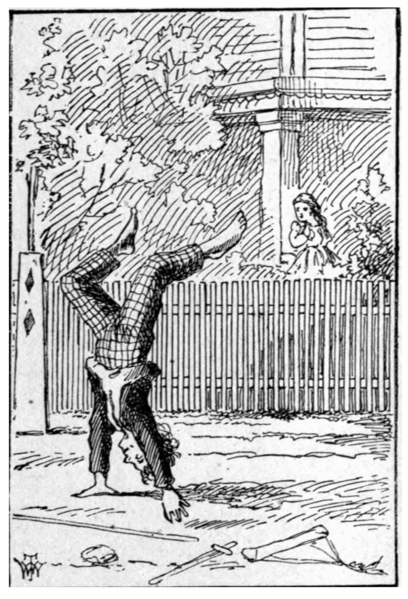
“Tom appeared on the sidewalk with a bucket of whitewash and a long-handled brush. He surveyed the fence, and all gladness left him and a deep melancholy settled down upon his spirit. Thirty yards of board fence nine feet high. Life to him seemed hollow, and existence but a burden.”
― Mark Twain, The Adventures of Tom Sawyer
Back to Edward who had this to say about complaints about boys swimming.
“We now and then hear complaints by prudish people of the boys bathing on Victoria Arm, on Deadman’s Island and elsewhere without a full bathing suit. What would they say to the boys of my time bathing in Nature’s suit only, and that on the waterfront from James Bay bridge all around to the Hudson’s Bay Company’s wharf? We bathed there at all times, and to our heart’s content, and never was exception taken to it by the authorities, or in fact by anyone. Use is second nature, and I suppose that accounted for it.”
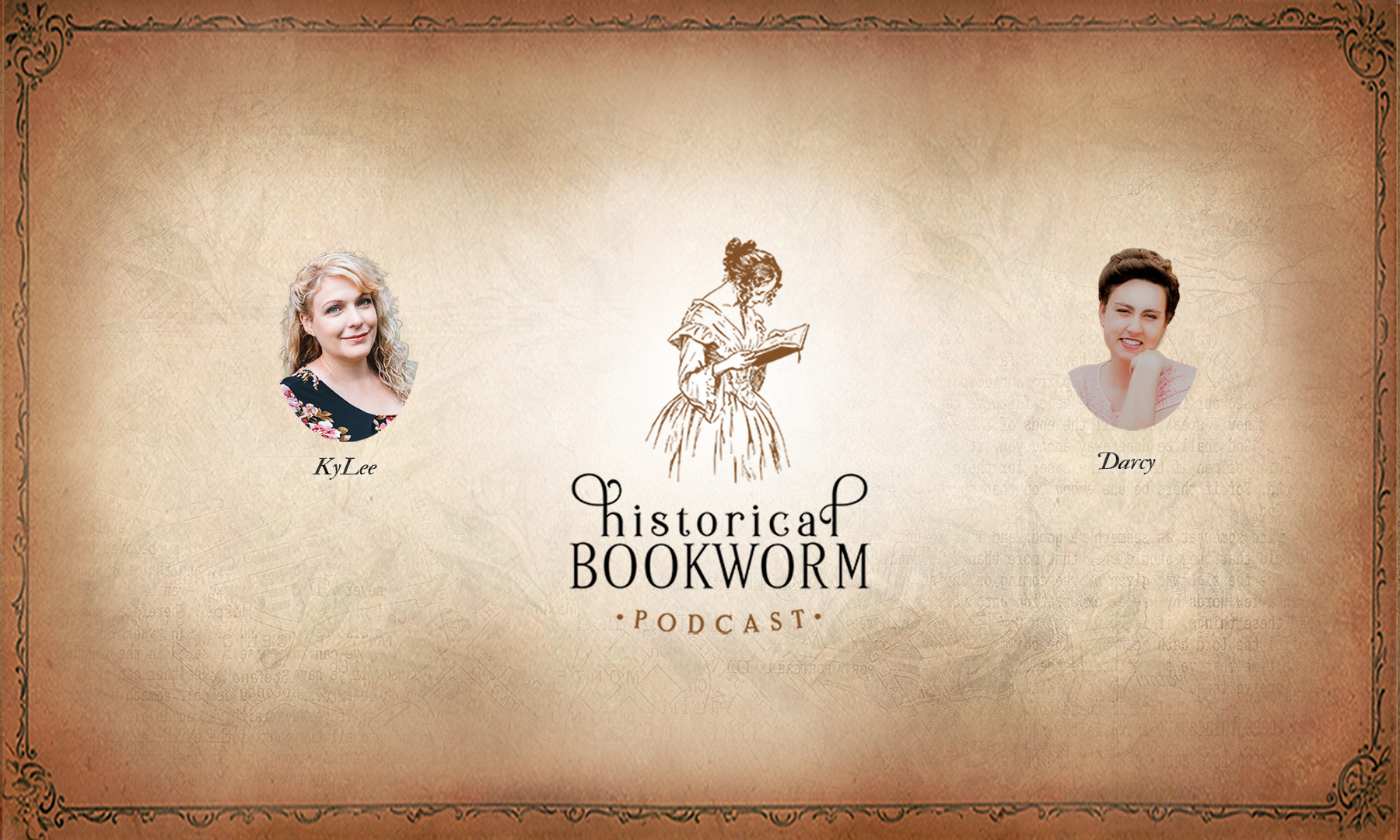
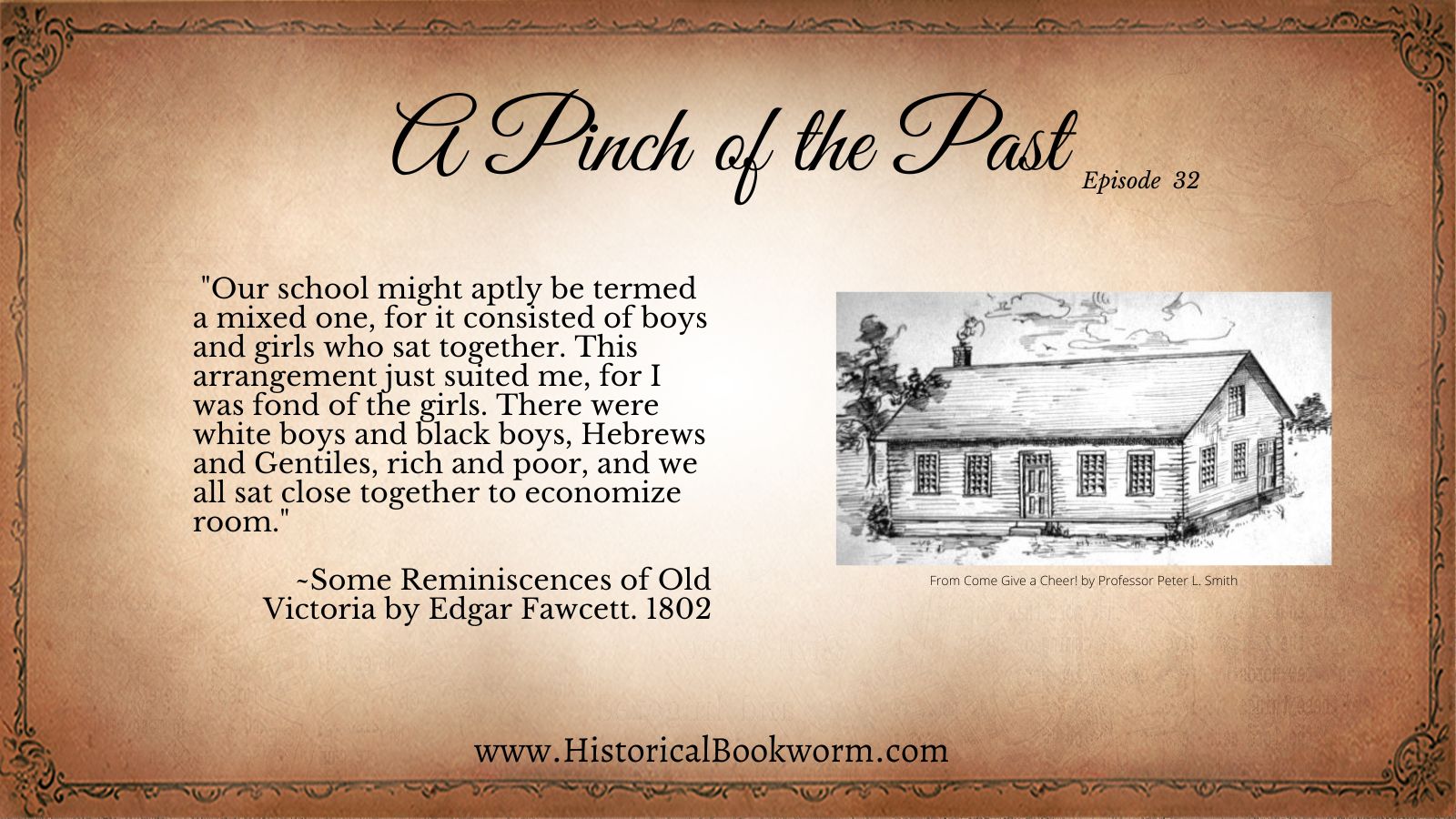
Never knew this, thank you for letting me know.